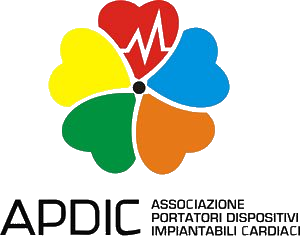The heart rhythm
Take care your heart
Learn more
Learn with us
There are general preventative interventions that help to prevent arrhythmias by decreasing the chance to develop a cardiac disease in adult life, and specific interventions that decrease the risk of developing arrhythmias in subjects that do have a cardiac disease or an inherited arrhythmic syndrome
Prevention of atherosclerotic cardiac disease. These are general interventions to prevent obesity, Diabetes, Hypertension, and Atherosclerotic Cardiovascular Disease. Key suggestions:
Diet: maintain a low-fat intake, give preference to fruit and vegetables. Ensure an adequate potassium and magnesium intake (potatoes, tomatoes, dried fruit, beans, pistachios, cocoa)
(see also: https://lpi.oregonstate.edu/infocenter/minerals ). Restrict ethanol intake to <30 g/daily: excessive intake may precipitate arrhythmias.
Lifestyle: regular physical exercise helps to prevent acquired cardiovascular diseases; quit smoking and substance use. This latter may either cause arrhythmias or precipitate myocardial infarction. Limit exposure to stress (occupational and environmental), engage in any relaxing activity (reading, dancing, cooking, photography, painting, modelling …) that results in well-being. In general, harmonizing physical, psychological and emotional well being helps to prevent cardiovascular diseases and arrhythmias. For tips to cardiovascular disease prevention see also https://www.umm.edu/features/tips_prev.htm.
Arrhythmia prevention in specific settings. Some suggestions are helpful for all the subjects at risk of cardiac arrhythmias, some others only for specific diseases.
Avoid sudden stress exposure: all arrhythmias syndrome. Pay particular attention to sudden acoustic stress in LQTS 2.
Avoid potassium and magnesium losses: this is most common in Heart Failure patients because of diuretic drug treatment. Do not forget potassium-sparing drugs (spironolactone, potassium canrenoate): a serum [K+] < 4mEq/L is an arrhythmia-predisposing factor. Transient hypokalemia (low serum potassium) may also develop because of diarrhea or excessive sweating, two conditions that require intensive supplementation.
Avoid doping or substance abuse: all cardiac diseases and arrhythmic syndromes
Avoid heavy exercise or competitive sports: recommended for subjects with Hypertrophic Cardiomyopathies, Right ventricular Arrhythmogenic Cardiomyopathy, Long QT Syndrome (especially LQT1), and previous Myocardial infarction.
Avoid QT-prolonging drugs: LQTS subjects, Heart Failure patients, all females with an arrhythmic syndrome. To access an updated list of QT-prolonging drugs and pharmacologic interactions, go to www.azcert.org
Avoid specific drugs in Brugada Syndrome, such as Na+ channel blockers (flecainide, pilsicainide, propafenone, aimaline, procainamide, dysopiramide), Ca++ channel blockers, α-stimulators, β-blockers, Tricyclic or Tetracyclic Antidepressants, Dimenhydrate, Edrophonium, Acetylcholine.
Timely treatment of fever when exceeding 38°C: This intervention is truly important to prevent arrhythmias in Brugada Syndrome. Paracetamol (500 to 1000 mg) and aspirin (500 to 100O mg) are the first-choice drugs. Paracetamol should be avoided in the event of recent alcohol intake or of liver impairment. Sponge baths may also provide a small but quick effect on body temperature.
